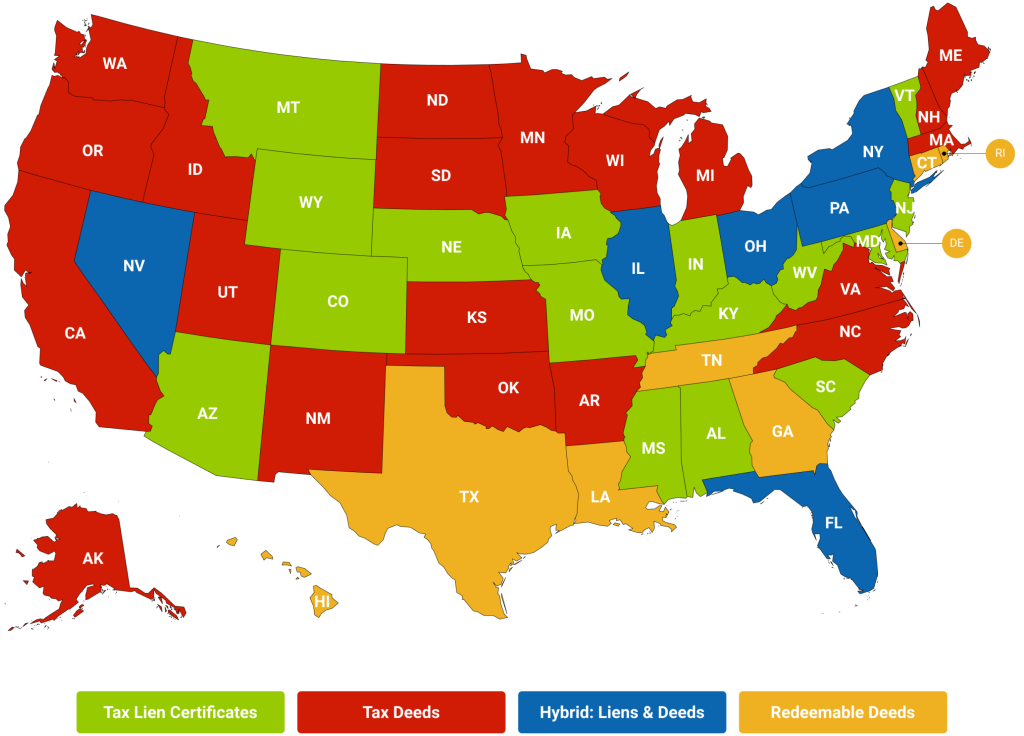
Real Estate Option Vs. Contract 📄
Hey, JP here…
And here’s an interesting question I recently encountered:

“My biggest real estate investing question *right now* is why would an investor use a purchase contract when an option contract doesn’t have the same requirements of us as investors? Is this usually a case of getting a contract if it’s worth it, assuming they don’t want to sign an option contract?”
Hey that's actually a great question! And one I'd hear from time to time, especially from newer investors who, frankly, have never really compared the two agreements and don't really understand the difference between them.
So, let me start there…
The option agreement 🆚 the real estate contract…
So at the highest level here what we’re really talking about is a unilateral vs. bilateral agreement. Let me explain…
In a nutshell, an option contract is a unilateral agreement. It's a 1-way agreement, meaning the seller is the only one who is actually on the line for specific performance of that contract. He has to sell. You don't actually have to buy the property if you don't want to. But during the term of the option agreement, you have the legal option to purchase, should you choose to exercise that option. Hence the name option agreement.
A purchase agreement, on the other hand, is bilateral, meaning it's 2-way binding. Both parties are on the hook for specific performance of that agreement based on its terms.
One more note: An option agreement is actually a type of contract and is, therefore, subject to standard contract law. I strongly recommend every investor to take a contract law class from your local board of Realtors.
It's half a day, sitting in a room with probably the most boring real estate attorney ever sharing his “wealth of knowledge with you.”

But, you’ll absolutely learn some of the core foundational stuff you need to have your mind wrapped around for what makes a legally binding agreement in your particular state.
It's really a great investment, and you don't have to be a Realtor to take those classes.
When to use an option…
Now, the lion's share of my experience comes as a wholesaler. I've done a little bit of a lot of other things: lease options, short sales, notes. But I don't consider myself an expert at those things.
Practically speaking, I’ve done a heck of a lot of wholesale deals, which is when an option agreement has to come into play.
So, here are 3 reasons why you need an option agreement:
Reason #1: When you're not sure it's a deal.
Now, I'm careful with this, and you need to be careful with this…
There's been a number of times when I think I've got my hands on a deal, but I'm just not sure it smells like a deal. The right elements are there, but I'm not sure if that crack in the foundation is a $1,000 problem or a $25,000 problem. Or maybe I'm not sure that this particular block fits within the scope of the buyer I have in mind for this deal.

So, I'm going to say:
“Mr./Mrs. Seller, I think I’ve got a deal here. I think I can make something work with this. As you know, I'm a wholesaler… so I've got access to a lot of players who you just don't have access to, because this is what I do, and I think I can make this happen. But I'm not 100% sure.
So, to keep me from practicing real estate without a license, we need to have some kind of an agreement in place. I'd like to have an option to purchase your property for $30,000. Does that number work for you?”
Seller: “Yes, it does.”
Me: “Great, I'm going to let you know in the near future if I'm going to be able to move forward on this, but we need to have an option in place so that I'm not out there playing Realtor without a license.”
So, I'll put an option in play when I think it smells like a deal, but I'm just not sure. And I need to do some more due diligence, or I just need to figure out if I actually have a buyer for that property.
Now, this the exception to the rule, it's not the rule for me, but it has been an important tool when I needed to pull it out.
Reason #2: When you're selling someone else's deal.
I call it the “flexible option.” Basically, it's when you give someone an option that gives them a way out that they can exercise at any time. So, it becomes kind of a non-exclusive option in practice.
Typically, you'll see this used when you're trying to wholesale another wholesaler's deal.
Reason #3: The lease option.
This one's painfully obvious…
If you don't know what a lease option deal is, you should. Basically, it's a lease and it's an option married together into one transaction. It's rent to own.
So, those are 3 ways to use an option…
But there are 3 caveats to watch out for…

Caveat #1: You still need a contract.
That's right. An option agreement is not a substitute for a contract. It's actually a precursor to a contract.
If and when you choose to exercise your option, you're going to have to put a purchase agreement in place. So just be aware of that.
You can't go to closing with just an option in place.
Caveat #2: It can feel a little wishy washy.
Now, this kind of gets to the core of the question, and that is: Why not use an option every single time?
Well, I got to tell you, I don't think you'll have success in a lot of viable deals if you always only approach it with an option.
Why?
Because you're going to be dealing with people, at times, who have enough savvy to know that you're really not trying to come to the table with much. You just want to have as many fishhooks out there as possible and hope that one of them is going to bite.
If you're going to play ball that way, you've got to be transparent about it, because the real estate world is a much smaller world than you probably think — and you’ve only got to burn somebody one time, and your reputation starts to go downhill really fast.
So, I don't think it's a strong way to approach deals to always only look at putting options in place. Plus, if you're dealing with a listed property, any Realtor worth their salt is not going to coach their seller to accept an option. They want to see a purchase contract.
And as for bank foreclosures, well they’re not even going to look at you if you come to the table with an option agreement instead of a purchase contract.

You can only use it when you're dealing belly to belly with the seller without anybody in the middle.
Caveat #3: Be honest.
Honestly, this is not so much a caveat as a friendly-caution I'd like to be clear about from the start… I'm going to tell you there is nothing more valuable than your integrity.
No profit, no potential profit, no deal that you should be willing to sacrifice for that.
And in this specific situation with an option, it means, as I've said, being transparent.
If you think this thing smells like a deal, but you're not really sure if you can close, you just need to come out and spell it out that way.
It's important that you don’t build up people into a position of thinking that you’re absolutely, positively going to close on a deal, when you just honestly have no clue if you're going to be able to or not.
Be transparent. You may be afraid you're going to lose the deal, but I think you're actually going to win a lot more than you lose by having your integrity intact.
Bonus Contract Info
There are 7 things needed for a real estate contract to be legal in my state — it could be a little different in yours, so be sure to check with your attorney. Here are those 7 requirements:
- Mutual Agreement: You need a “meeting of the minds” on what you want to do and how.
- In Writing: While verbal contracts might be legal, they’re rarely enforceable. So put it in writing.
- Identify the Parties: You need to clearly identify who the seller and buyer are — by name.
- Identify the Property: Many people use the legal description, but this is overkill, in my opinion. I just put the full street address and that’s just fine.
- Purchase Price: Must state the purchase price of the property, either specifically (e.g., $40,000) or a reasonably ascertainable figure (e.g., “appraised value as determined by XYZ Appraisal Company”).
- Consideration: A contract must have consideration to be enforceable. This is, technically speaking, the benefit, interest or value that induces a promise; it’s the glue that binds a contract. In an option, think of it as a fee (not a down payment) the potential buyer pays in return for the privilege of having a binding option to purchase. The consideration amount really isn’t all that important, but rather whether there is consideration at all.
- Signatures: A contract must be signed by all parties to be enforceable. (Duh, right?)
And there you have it… and here's mine!
Those are my tips for using an option agreement versus a contract.
A contract is what you put into play after the option agreement, and you don't always want to lead with your option agreement.
I think the option agreement is a surgical tool to be used for the right place at the right time when it makes sense for the transaction.
Oh, and by the way, if you don't have your own option agreement or a simple, plain-English purchase contract that you'd like to you, here's one of each from me. On the house. No strings attached. You're welcome! ッ
Deal on,
– JP


I did learned about the Option Contract on YouTube. I like the contract used in the example.
Thanks again JP for your awesomeness. Can’t wait to use them.
Great tool
I did not know that you could do this affidavit, what an excellent document to have in your arsenal. thanks!
Thanks for the information.
WOW more great info that is a definite.
The explanation of option agreements vs purchase agreements makes a lot of sense. Your wording for definition purposes is excellent and am right on target . Thx,JW
Thank you for this article. It has good information. I would like to also learn more about lead generation.
Thank you for making your option agreement available as well as your purchase agreement. This is good stuff.
Awesome training.
It’s my first time trying to understand RealEstate for something I never understood much. Looking forward to understand how it work with good awesme leader in this program. I just try to do it.
What did you mean by not always leading with an option?
I am new to the real estate game and I will work diligently in learning these contracts and when and how to use them properly. This seems harder than the times of ’29, lol. (1929).
I need to know I am putting in my first reo offer.tgey are asking about the lender and info
I’d like to learn more. I’ve done 46 doors so far.
I don’t think there is much difference between a “contract” that is subject to inspections and other due diligence, and a “lease with an option” that does not provide that the rent is payable from day 1. In fact I think the Option is more binding than a “contract” if it does, in fact, provide a lease or rent amount and a due date. What do you think?
I could really use a little help with my first tax lein, how to check court houses ,for the tax leins.l know if l can due this once ,l can due it many more times..l am 78 and still working,but am not content l have watched vidios read every thing. But still somewhat confused
Very knowledgeable I’m ready to start
A lot of this sounds like contract law
It’s a lot to take in an remember but as I said I’m slow but sure
I agree, my dad always told us kids that honesty is the best policy. If you tell one lie you’ll have to tell another to cover that one.
Before I make a decision, about something i feel is wishy washy, I ask God to Reveal, expose and remove me out of any and every situation that will not be beneficial.
I’m expecting to learn enough information from this course as well as research on my own to be able know enough real estate terminology to make a profitable binding contract.
I like the options agreement, and wholesaling, the contract must be signed by both parties
It’s good that you are sharing info on contractor lien
Hi, I’m brand spanking new to Real estate, but have always wanted to work with some area of this. I am excited about this new venture, and am ready to get started learning. Thank you in advance
Needed very much!!! Thanks
Sounds like it could be a very useful tool
So, I can meet up with a seller and tell the seller that I would like to buy the property .it would not be in good interest to pay full price so what if I took up the monthly payment and repairs. I just need a contract to occupied the property. Could I go with that
More tools in the tool box.
I learn a lot from reading this article. Thank you
lucky me, i have never had to use one yet
Honestly contracts is something that is expensive for an attorney to do. This is a great resource….
I’m just happy to be informed about the Contractor Lien Waiver I really never knew I needed. Thank you for this awesome information.
I appreciate the “Lien Waver” form offered!
Please forward a copy to my email address.
I look forward to receiving more helpful trips!
I appreciate the “Lien Waver” form offered!
Please forward a copy to my email address.
I think it is a great tool to have.
It gives me peace of mind to know that I have done all I can to protect myself from dishonest business practices.
I look forward to receiving more helpful trips!
great tool for protecting yourself from crooked contractors
Can’t wait to get started
Hello JP: valuable information regarding options and when to use them in a deal. I just attended a seminar yesterday and the person leading it touched on options, but your definition really brought the concept home for me….makes a lot of sense. So, thank you